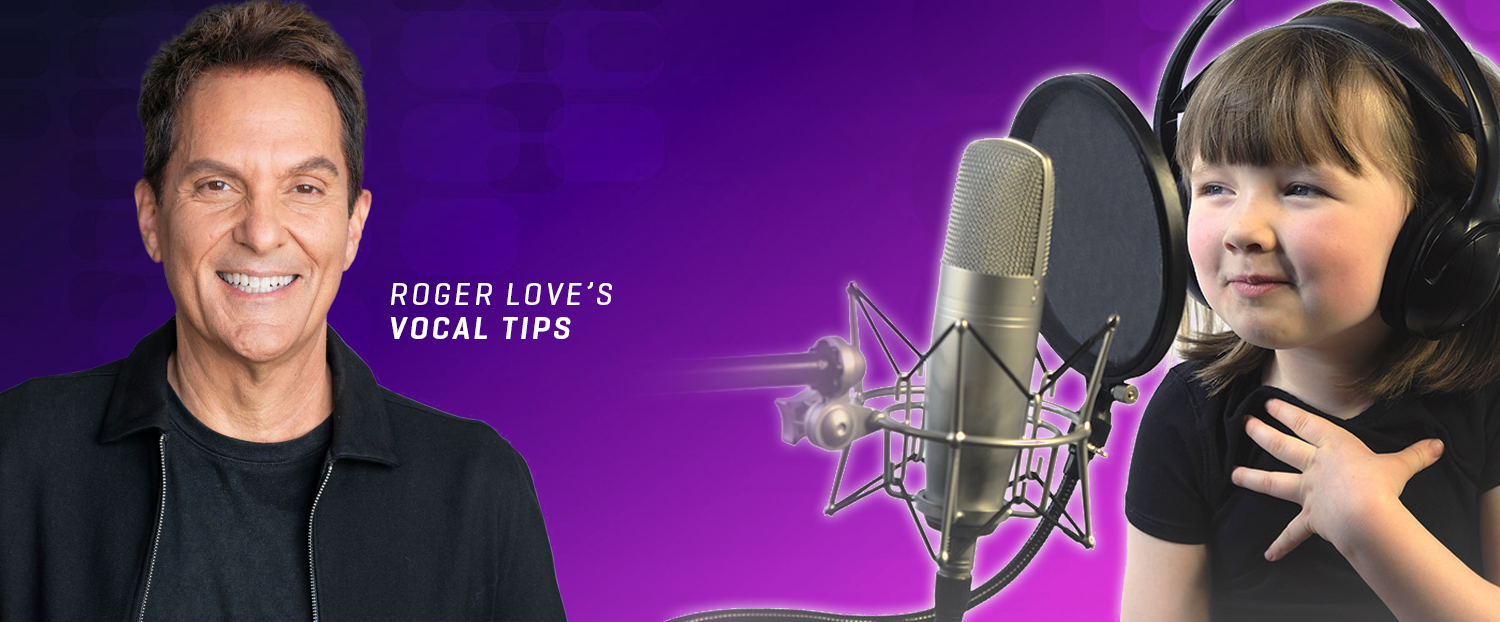Summary
If you, or someone you know, is an adult but still has a voice that sounds like a kid, I have good news for you! It is simply a case of the wrong choice made from the wrong information to choose from.
Watch this video lesson to learn what that means and what you can do to sound better, starting today!
Did you like this episode?
Please spread the “Love” by sharing this with your friends. Remember, I’m working to save the world one voice at a time, starting with yours. You’re my family now, and we need to work together to extend our mission and reach. The more you share, the more I can share with you the steps to nurturing an honest speaking method, and we can actually help people globally find their voices and change their lives for the better.
Ready for your best life? Find your speaking solutions here.
[apss_share]
Play the Audio of this post:
TRANSCRIPT
Hi, I’m Roger Love, celebrity voice coach and author of the bestselling book Set Your Voice Free. You know what I hear an awful lot from students? This phrase, “I’m an adult, but I sound like a kid!” Grown-ups come to me all the time, and they are thirties, forties, fifties, sixties, and when you listen to them, you’d think that they were pre-puberty, somewhere around ten, eleven, twelve max. And here they are, trying to function as adults, with the voice of a child, thinking that they are somehow trapped in that choice, or that it’s not a choice at all. They’re wondering why so many, all of their friends, grew up, and when it was time for their voice to sound like adults, they all did, but what’s different about them?
And they think, to me, that it literally is genetic or a physical or a mental issue, and I am here to tell you exactly what the issue is. It is simply the wrong choice with the wrong information to choose from. Let me explain. When we’re little, the voice is higher and squeakier and thinner. The reason that is, is because your vocal cords are shorter and thinner, and your throat and the Adam’s apple and the larynx, the house for the vocal cords, are all smaller. So, your instrument is smaller. The vocal cords are smaller. The space inside there, where the vocal cords live, is all small, and the vocal cords are tiny. That’s why it sounds thin and high. Short strings make high, tinny sounds. There’s a difference between a ukulele and a guitar. A ukulele sounds high and thin [ukulele imitation], and a guitar is like [guitar imitation]. The size of the strings influences the body of the tone, how thick it is, how bassy it is.
So, little kids sound like little kids because they have little cords. This is boys and girls. Now, when a boy and a girl hits puberty, what happens is, at that moment, a male voice drops an entire octave, so a male voice goes lower, and it just gets way, way lower than a woman’s. The reason that happens is because, right around that time, a man’s vocal cords and larynx and Adam’s apple grow faster than a woman’s. A woman’s Adam’s apple and vocal cords and all of that stop growing at a fast rate by the time they get to the puberty age, but a boy’s larynx and vocal cords and vocal apparatus grow faster and continue to grow bigger. That’s why a boy’s Adam’s apple sticks out more. Go into the room and find a boy and a girl. Find a man and a woman, even better, and put your finger on their Adam’s apple, or just look at their Adam’s apple. You will see the man’s Adam’s apple sticks out farther. That’s because the Adam’s apple is bigger. The vocal cords are bigger, the larynx, the house of the vocal cords, bigger.
So, during puberty, a man’s voice normally drops, because of the size of the Adam’s apple and larynx changing. Are you with me? This is not too technical. I know you understand. So, a woman’s voice continues where it was, and a man’s voice drops an octave. Now, some boys have gotten used to that high tenor sound, and even when their voice drops an octave down when puberty happens, they have already gotten it in their head that this is the sound of their voice, and some women, the same thing. Every morning, we wake up. We open our mouth. We make sound. And our brain records that sound, and then every day past that, the brain and the body are trying to get together to make the same sound. It’s how we actually maintain our sanity, so that I wake up in the morning, and I go, “Yep, I’m Roger. Yep, this is my room. Yep, this is my voice. I’m still sane. OK, don’t lock me away.” If I wake up and my voice is totally different, my brain says, “Who the heck are you, buddy? What are you doing in Roger’s body? What are you doing in Roger’s room? What are you doing sleeping next to Roger’s wife?”
So, the brain and the body kind of get together, and it gets used to keeping you in the same sound. So, some people have this really cute, high voice. Maybe they’re getting great response for it. Maybe the girl who has this little, cute, squeaky, high voice, as she gets a little older, she still has that cute, sweet personality, and she’s used to people reacting to her as, “Oh, you’re so cute. You have such a bubbly personality.” Maybe the guy who has that high voice that’s kind of airy gets used to people thinking, “Oh, he’s so sweet. He’s so kind. He’s not angry at anybody. We like him. He’s so much fun.” Maybe they get used to the way people react to that higher, sweet, thinner, younger voice. Maybe, when voices change, people get afraid of us, because all of a sudden we’re loud, and we have volume and thickness, and that can put some people off when they hear.
So, the brain is trying to keep you the same, and maybe the way people react to you is trying to keep you the same. No matter what, in the end result, it is very easy for a boy or a girl to keep the same voice, even after puberty happens, if they try to keep the same voice for emotional reasons. And here’s all you need to do to fix it, no matter what age you are. This is a two-minute fix. This isn’t a twenty-year fix. It is a momentary fix. If your voice sounds like this, and you’re a boy or a girl, all you have to do—two things. You’ve got to get your Adam’s apple to come down lower. What do I mean by that? You literally have to get your Adam’s apple from here to here.
How do you do that? You lower your tongue. You say, “Mamamamamam,” and then you say, “Mamamamamam.” Did you see my Adam’s apple go down? All I’m doing is pulling tongue down, not back, pulling my tongue down. I’m keeping the tip of my tongue right up against the back part of my teeth, and the back part of my tongue, from the middle to the back, I’m pulling down. And when I do that, I lower my Adam’s apple. Put your finger on your Adam’s apple and say, “Mum.” OK, now say, “Mum,” with that Yogi Bear kind of a funny sound like this, like I have a cold in my nose, “Mum.” Do you feel how your Adam’s apple came down? Step one, you’ve got to learn how to lower your Adam’s apple. It’s no big deal. Just play around with the position of your tongue, or play around with that Yogi Bear sound, and you will feel the Adam’s apple come down.
That is fifty percent of the equation. When your Adam’s apple comes down, the back part of your throat opens up, and what was a squeaky little high, thin sound suddenly becomes a bassy, lower, strong, full, rich sound for men or women. So, first step, get my Adam’s apple down by practicing, “Mumumum, gugugug.” I know it sounds funny. It’s supposed to. You’re just trying to get used to your Adam’s apple down.
The next thing is, if you have a little kid’s voice, it’s because you have no edge, and you have all air. You’re speaking with mostly air, so you need to add more edge. Here’s what air sounds like. Here’s what eeeeedge sounds like. Say this for me, “Braaaaat.” Go ahead, “braaaaat.” Now say “edge.” “Eeeeedge.” Do you feel that kind of vibration in the back part of your throat? “Eeeeedge.” That’s the sound that the vocal cords make when they go longer into a longer, thicker position. So, instead of talking airy, you want to talk more edgy. Airy, airy, airy, edgy, edgy, edgy.
Two things—I lower my Adam’s apple down, and I add the edge in, and then I just went from being ten years old to having a low larynx to adding the edge in to sounding like an adult. All you have to do is add in the edge and lower your Adam’s apple, and you have finally grown up! Happy birthday, happy birthday, happy birthday, happy birthday, to all of those birthdays that you’ve avoided sounding like an adult and reaping the benefits of making sure that people understand that you are an adult. You’re grown up. You can order your own pizza. You can have relationships. You don’t have to date people who like the sound of you being ten years old. You can finally step into all of the power of your life and get tips for enhancing your speaking voice for success. Lower your Adam’s apple, add the edge back in, and you have just become an adult who sounds like an adult. Play with it and enjoy the results.
Get 4 Free Voice Training Videos That Reveal How You Can Discover Your Perfect Voice
By submitting your email address, you agree to receive emails for this training and special offers. Unsubscribe, anytime.





